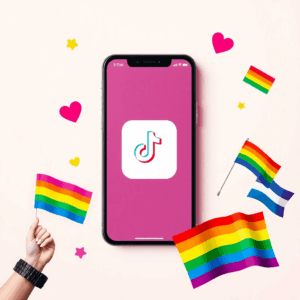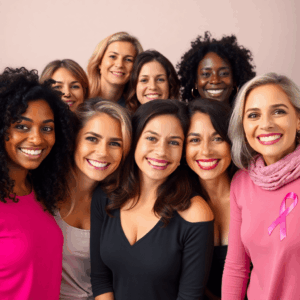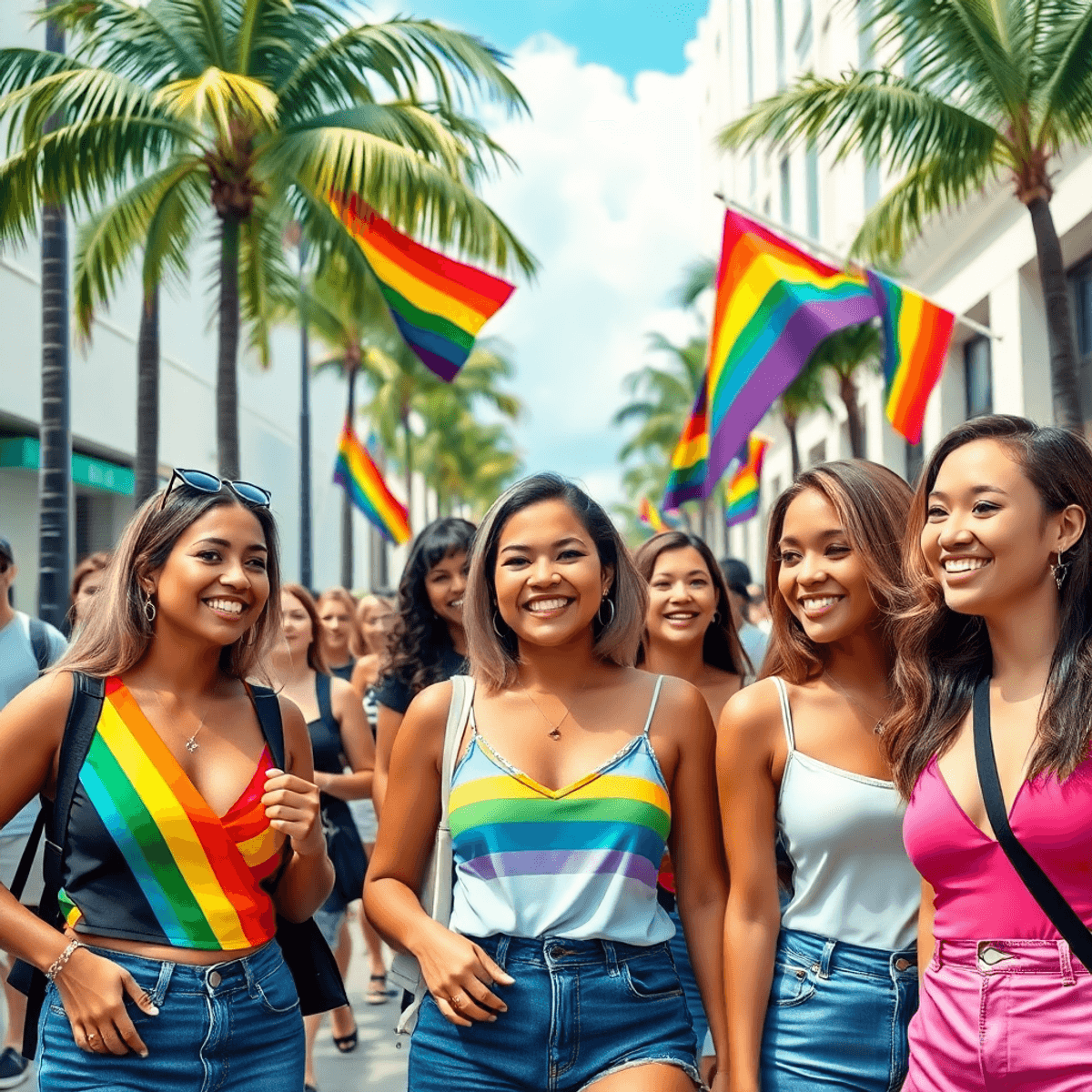The term “shemales” originated within the adult entertainment industry as a marketing label, yet it’s crucial to recognize its problematic nature. This outdated term has historically been used to describe transgender women, particularly in adult content and personal advertisements.
Miami’s vibrant LGBTQ+ community includes a diverse population of transgender women who contribute significantly to the city’s cultural landscape. These individuals deserve recognition and respect beyond outdated industry terminology.
Key points about terminology:
- The word “shemales” is considered derogatory by many in the transgender community
- “Transgender women” or “trans women” are the appropriate, respectful terms
- Adult industry marketing often perpetuates outdated language
- Miami’s trans community advocates for dignified representation
Understanding appropriate terminology helps create meaningful connections and shows respect for transgender individuals in Miami’s LGBTQ+ spaces. This knowledge enables authentic dialogue and supports the community’s ongoing journey toward acceptance and recognition.
The Transgender Community in Miami
Miami’s transgender population is an important part of the city’s diverse culture. Recent estimates suggest that around 1.4% of adults in Miami-Dade County identify as transgender, which is a significant presence in the local LGBTQ+ community.
Key Contributions of Trans Women in Miami
Trans women in Miami play crucial roles in various areas:
- Leading community initiatives and advocating for rights
- Organizing cultural events and showcasing artistic talents
- Running local businesses and contributing to the economy
- Providing social support and creating networks for transgender individuals
Cultural Influences on Transgender Experiences
Miami’s blend of Latin American, Caribbean, and American cultures creates unique experiences for transgender individuals. This cultural mix has influenced:
Acceptance in Different Areas
- Higher visibility of transgender individuals in arts districts
- Strong presence of trans people in South Beach
- Growing representation of transgender individuals in suburban communities
Community Spaces
- Establishment of trans-inclusive nightlife venues
- Creation of LGBTQ+ community centers
- Availability of support group meeting locations
Varied Experiences Across Miami Neighborhoods
The multicultural environment of Miami affects both acceptance and challenges faced by transgender individuals. Spanish-speaking trans communities find strong support within Latin neighborhoods, while beach communities often show progressive attitudes toward gender diversity. Local organizations have reported different experiences across various neighborhoods, with some areas making significant progress in accepting transgender individuals while others still hold traditional views.
Economic Impact of the Transgender Community
Miami’s reputation as an LGBTQ+ destination benefits its transgender community by providing opportunities for visibility and economic participation. Trans-owned businesses contribute to the local economy, particularly in industries such as fashion, beauty, and entertainment.
Understanding Terminology and Sensitivity
Language plays a vital role in shaping perceptions and experiences within the transgender community. The term “shemale” originated in the adult entertainment industry and carries derogatory connotations that reduce transgender women to sexual objects. This outdated terminology fails to acknowledge the complex identities and lived experiences of transgender individuals.
Preferred Terminology:
- Transgender woman or trans woman: Respectful terms that recognize gender identity
- Trans or transgender: Umbrella terms for individuals whose gender identity differs from their assigned sex at birth
- Non-binary: Individuals who don’t identify exclusively as male or female
Using appropriate language creates an environment of respect and dignity. Misgendering, which refers to the act of using incorrect pronouns or labels for a person, can perpetuate harmful stereotypes, cause emotional distress, create barriers to healthcare and social services, impact employment opportunities, and affect mental health and well-being.
The transgender community in Miami actively advocates for respectful language use through educational initiatives and community outreach. Local LGBTQ+ organizations provide resources and training to businesses, healthcare providers, and community members about appropriate terminology and cultural sensitivity.
It is essential to understand the implications of using outdated terms, as they can have far-reaching effects on an individual’s sense of safety and belonging in public spaces. Many trans individuals report that proper language use directly influences their sense of safety and belonging in public spaces. Miami’s diverse communities demonstrate increasing awareness of respectful terminology, contributing to more inclusive social environments across the city.
Moreover, it’s important to note that laws such as those outlined in the New York State’s Gender Expression Non-Discrimination Act (GENDA) are crucial steps towards ensuring respect for gender identity in various aspects of life.
Social and Dating Platforms Featuring Trans Women in Miami
Miami’s digital landscape offers diverse platforms for transgender women seeking connections, relationships, or community engagement. Dating apps like Butterfly and TAT (Transartistic) specifically cater to trans individuals, creating safe spaces for authentic interactions.
Popular Mainstream Dating Platforms
Popular mainstream dating platforms have adapted their services:
- Tinder includes gender identity options
- OkCupid offers comprehensive LGBTQ+ inclusive features
- Grindr provides trans-specific filters and safety tools
Local Personal Websites
Local Miami personals websites display a significant presence of trans women seeking various types of relationships. These platforms often implement verification systems to enhance user safety and reduce potential harassment.
Strengthening Community Bonds through Social Media
Social media platforms strengthen community bonds:
- Instagram hashtags like #MiamiTrans connect local community members
- Facebook groups host private spaces for support and socializing
- Twitter enables real-time updates about local trans events
Safety Considerations for Online Dating:
- Meet in public locations for initial meetings
- Share location details with trusted friends
- Use platforms with identity verification
- Report suspicious or disrespectful behavior
- Trust your instincts when interacting online
Many trans women in Miami utilize multiple platforms simultaneously, creating broader networks while maintaining personal boundaries. Local LGBTQ+ organizations often moderate dedicated online spaces, ensuring respectful interaction and community guidelines compliance.
Cultural and Social Events Supporting Transgender Visibility in Miami
Miami’s vibrant LGBTQ+ scene hosts numerous events celebrating transgender visibility and fostering community connections. The Miami Beach Pride features dedicated transgender programming, including panel discussions, workshops, and performances by trans artists.
Key Annual Events:
- Trans Day of Visibility March (March)
- TransCon Miami Summer Festival
- Miami Trans Week (November)
- Unity Coalition’s TransArt Exhibition
Local organizations like Pridelines and TransSocial coordinate regular meetups, support groups, and social gatherings. These events create safe spaces for transgender individuals to connect, share experiences, and build lasting relationships.
The Miami Beach LGBTQ Center hosts monthly transgender-specific events:
- Professional networking mixers
- Health and wellness workshops
- Cultural celebrations
- Advocacy training sessions
These community gatherings have sparked positive changes in public perception. Local businesses actively participate by sponsoring events and providing inclusive spaces. The TransMiami Film Festival showcases transgender stories, attracting diverse audiences and fostering understanding through art and media representation.
Miami’s transgender events calendar has expanded significantly, with attendance growing yearly. The Unity Coalition’s TransArt Exhibition highlights trans artists’ work, creating visibility through creative expression. These events strengthen community bonds while educating allies about transgender experiences and challenges.
Challenges Faced by Transgender Women in Miami
Miami’s transgender community experiences varying levels of acceptance across different neighborhoods and social circles. South Beach might offer a welcoming atmosphere, while other areas present significant barriers to inclusion.
Common Challenges:
- Housing discrimination forces many trans women into unsafe living situations
- Employment barriers, including workplace harassment and hiring bias
- Limited access to trans-inclusive healthcare providers
- Misgendering and deadnaming in public spaces
- Physical safety concerns, particularly during nighttime
The intersection of racial and gender identity creates additional hurdles for trans women of color in Miami, who face compounded discrimination in healthcare, housing, and employment sectors.
Recent Florida legislation has impacted transgender rights, including restrictions on gender-affirming care and bathroom access. Local advocacy groups respond through:
- Legal aid clinics offering free representation
- Know-your-rights workshops
- Documentation assistance programs
- Anti-discrimination policy lobbying
Miami-Dade’s Human Rights Ordinance protects against gender identity discrimination, yet enforcement remains inconsistent. Trans advocates push for stronger implementation of existing protections while building coalitions with other marginalized communities to amplify their voice in local politics.
The Miami Police Department’s LGBTQ liaison unit works to improve law enforcement interactions with trans individuals, though trust-building remains an ongoing process. Training programs for officers focus on proper pronoun usage and respectful engagement during routine encounters.
The Role of Crossdressers within the Community Context
Miami’s gender-diverse landscape includes distinct yet interconnected communities of crossdressers and transgender individuals. Crossdressers express their gender identity through clothing and presentation while typically identifying with their assigned gender at birth – a key distinction from transgender women who live authentically as women.
The city’s nightlife scene welcomes crossdressers through:
- Dedicated venues hosting regular crossdressing events
- Safe spaces in LGBTQ+ clubs and bars
- Special nights celebrating gender expression diversity
Personals ads and social platforms reflect this vibrant community:
- Dating site profiles specifically for crossdressers
- Social media groups organizing meetups
- Online forums sharing resources and experiences
Crossdressers bring unique perspectives to Miami’s gender diversity through:
- Breaking traditional gender expression norms
- Creating art and performance spaces
- Building bridges between different gender-diverse communities
The presence of crossdressers in Miami enriches local LGBTQ+ spaces by challenging binary gender expectations and fostering acceptance of varied gender expressions. Their visibility in social settings helps normalize gender non-conformity, contributing to a more inclusive environment for all gender-diverse individuals.
Local crossdressing communities maintain active social calendars, organizing private gatherings and public events that celebrate freedom of gender expression. These events create opportunities for education, support, and connection while respecting the distinct identities within the broader LGBTQ+ community.
Media Representation and Adult Entertainment Contexts
Adult entertainment in Miami has historically used terms like “shemales” in marketing and content categorization. This terminology creates problematic stereotypes that affect transgender women’s daily lives beyond the adult industry sphere.
The adult entertainment sector’s portrayal of trans women often relies on:
- Exoticization and fetishization
- Outdated, offensive terminology
- Simplified narratives that ignore personal identities
- Marketing that emphasizes physical attributes
These representations ripple through mainstream media, creating misconceptions about transgender women’s lives, experiences, and identities. Local Miami news outlets and entertainment media sometimes perpetuate these stereotypes, affecting public perception and understanding.
Impact on Public Understanding
The adult industry’s influence extends to:
- Dating apps and personal ads terminology
- Social media content algorithms
- Public discourse about trans identities
- Community safety and respect
Progressive media outlets in Miami have started featuring more authentic trans narratives, highlighting:
- Professional achievements
- Personal stories
- Community leadership roles
- Cultural contributions
Local LGBTQ+ publications actively work to counter stereotypical portrayals by showcasing diverse transgender experiences. These efforts help reshape public understanding beyond adult entertainment tropes, though the impact of historical misrepresentation persists in various social contexts.
The push for accurate media representation continues through community advocacy, education, and increased visibility of trans individuals in mainstream Miami media channels. However, the adult entertainment industry’s influence on societal perceptions remains significant, as evidenced by its impact on dating app terminologies and social media content algorithms.
Moreover, the need for comprehensive research into the media representation of marginalized communities is more pressing than ever.
Resources and Support Networks for Transgender Women in Miami
Miami’s transgender community has a strong network of organizations that offer important support services. Pridelines Youth Services is a key resource, providing counseling, support groups, and safe spaces for transgender individuals of all ages.
Key Healthcare Providers:
- Care Resource Community Health Centers – specialized transgender healthcare services
- Jackson Memorial Hospital’s LGBTQ+ Clinic – hormone therapy and transition-related care
- University of Miami Health System – comprehensive medical services
Mental Health Support:
- The Alliance for LGBTQ Youth – professional counseling services
- YES Institute – mental health resources and crisis intervention
- Miami LGBTQ Counseling – specialized therapy sessions
Community Organizations:
- TransSocial, Inc. – advocacy, education, and support services
- Unity Coalition|Coalición Unida – cultural programs and legal assistance
- SAVE – political advocacy and community outreach
These organizations play a crucial role in helping transgender women access medical care, mental health support, and community connections. Local support groups meet weekly, providing spaces for sharing experiences and building relationships. Housing assistance programs help transgender women secure safe living arrangements, while job placement services assist with employment opportunities.
The availability of Spanish-language services reflects Miami’s diverse population, ensuring resources reach Spanish-speaking transgender individuals. Free HIV testing, prevention services, and healthcare navigation support address specific health concerns within the community.
Conclusion
Miami’s transgender community deserves respect, understanding, and support from all city residents. The path toward true inclusivity requires active participation from everyone – allies, community members, and organizations alike.
Your engagement with transgender individuals should reflect dignity and awareness. This means:
- Using appropriate terminology and avoiding outdated terms
- Recognizing trans women as women
- Supporting local LGBTQ+ initiatives and events
- Speaking up against discrimination
- Learning from transgender voices and experiences
Miami continues making strides in acceptance and understanding. Local organizations, advocacy groups, and community leaders work tirelessly to create safe spaces and equal opportunities for transgender individuals. Their efforts shape a future where every person can live authentically without fear or prejudice.
The progress achieved inspires hope, yet work remains. Your role in fostering respect and inclusion makes a difference in building a Miami where transgender individuals thrive as valued community members.
FAQs (Frequently Asked Questions)
What does the term ‘shemales’ mean, and why is it important to understand its usage in Miami’s transgender community?
The term ‘shemales’ is commonly used in the adult entertainment industry but is considered outdated and offensive when referring to transgender women. Understanding this term’s implications is crucial for respectful dialogue within Miami’s LGBTQ+ community, especially when discussing transgender women.
How diverse is the transgender community in Miami, and what role do trans women play locally?
Miami’s transgender community is diverse, with trans women playing a significant role within the local LGBTQ+ scene. The city’s cultural diversity influences both acceptance levels and challenges faced by transgender individuals, fostering a unique environment for advocacy and community building.
Why is using respectful terminology important when referring to transgender individuals in Miami?
Using respectful language such as ‘transgender women’ or ‘trans women’ instead of outdated terms like ‘shemales’ enhances visibility and respect for the community. Proper terminology positively impacts social acceptance and helps combat stigma within Miami’s LGBTQ+ population.
What social and dating platforms are popular among trans women in Miami?
Popular dating platforms and personals ads cater specifically to or feature trans women in Miami. Social media plays a vital role in connecting trans individuals, increasing visibility, and providing safe spaces for interaction while emphasizing respect and safety online.
What cultural events support transgender visibility and inclusivity in Miami?
Miami hosts key LGBTQ+ events such as Pride celebrations and transgender support gatherings that highlight the community. Local organizations actively promote inclusivity through these events, which significantly influence public perception and foster strong community ties.
What challenges do transgender women face in Miami, and what resources are available to support them?
Transgender women in Miami encounter challenges including discrimination, stigma, and variable social acceptance. However, local advocacy efforts, legal protections, healthcare services, counseling, and support groups provide essential resources aimed at empowerment and wellbeing within the community.
Written by
Joshua Gonzales
You may also interested in:

What does the Bible say about lesbian women?
Explore what the Bible says about lesbian women, focusing on scripture, context, and distinctions between attraction and behavior.
Why are straight women obsessed with lesbian TikTok?
Explore why straight women are drawn to lesbian TikTok, from curiosity and identity to authentic connections and community support.
